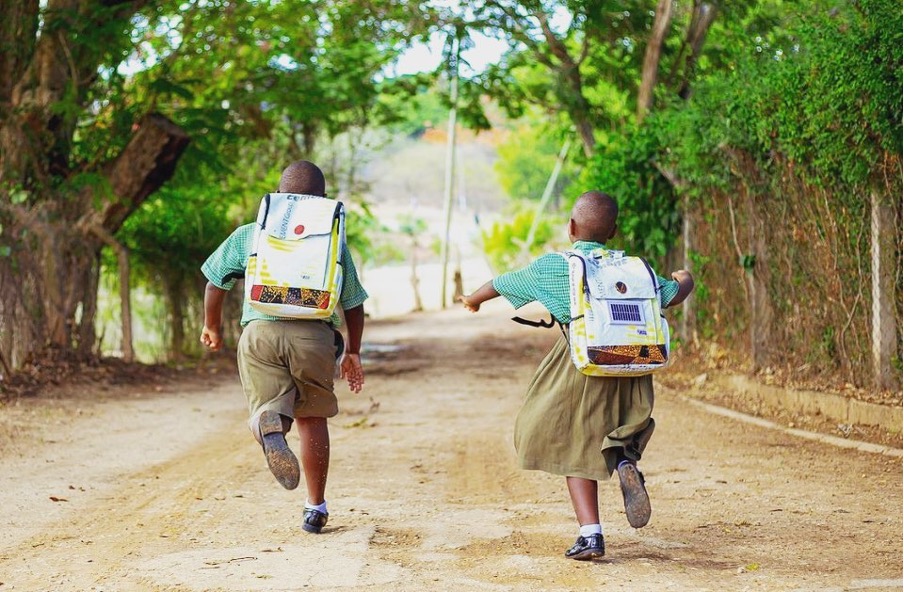According to UNESCO, the primary school net enrolment rate in Tanzania was 83.5% in 2018. This means that almost 20% of primary school-aged children in the country were not enrolled in school. Concurrently, the World Bank reported that only 22% of Tanzania’s population had access to electricity in 2019. This lack of access to electricity can be a significant barrier to education and economic development.
In Tanzania, many children’s access to education is hindered by poverty, lack of access to schools, and a lack of resources like books and electricity. However, one man’s determination to make a difference has led to the birth of an innovative solution that is changing the lives of many children in the country.
Innocent Joseph is the founder of Somabags, a start-up based in Mwanza that creates solar bags from used cement bags. These bags allow children to charge the solar during the day and use the light to read at night. The idea behind Somabags came from Joseph’s passion for education and his observation of the challenges faced by children in accessing education.
Innocent’s journey began with a book cart that he used to roam around with and read to children both in school and out of school. However, he soon realized that the children were not reading the books because their homes had no electricity. This prompted him to think of a solution that would allow children to read at night without electricity.
Soma Bags are made from used cement bags that are collected from construction sites. These bags are then cleaned, cut, and sewn by a team of local women who work for Somabags. The bags are then fitted with a solar panel that allows the bags to charge during the day. The solar panel is also fitted with a USB port that allows children to charge their phones, providing them with access to communication and information.
The impact of Somabags has been tremendous. The bags have provided children with a reliable source of light that allows them to read at night. This has led to an improvement in academic performance as children are now able to study more effectively. The bags have also provided children with access to information and communication, allowing them to keep in touch with their families and friends.

One can also confidently say that Somabags has become a solution that has changed the lives of many as currently, Somabags has over 85 employed personnel, a production capacity of 6,000 bags per month but a soaring demand of 13,500 bags. The company generates revenue through bag sales and exclusive brand partnerships while significantly contributing to environmental conservation by repurposing up to 200,000 packing sacks monthly, preventing them from becoming street litter. Additionally, SomaBags has diversified its product portfolio by including leather-incorporated safari bags mainly meant for both export markets.
Soma bags and the Sustainable Development Goals (SDGs), Soma bags can contribute to several SDGs. For example, providing children with access to education through the use of solar bags can contribute to SDG 4 (Quality Education). Similarly, by creating job opportunities for women in Mwanza, Soma bags can contribute to SDG 5 (Gender Equality) and SDG 8 (Decent Work and Economic Growth). Additionally, by using recycled materials to create their bags, Soma bags can contribute to SDG 12 (Responsible Consumption and Production). Overall, Soma bags is an excellent example of how innovation and entrepreneurship can be used to achieve multiple SDGs simultaneously.
©2023 – Funguo Programme. All rights reserved